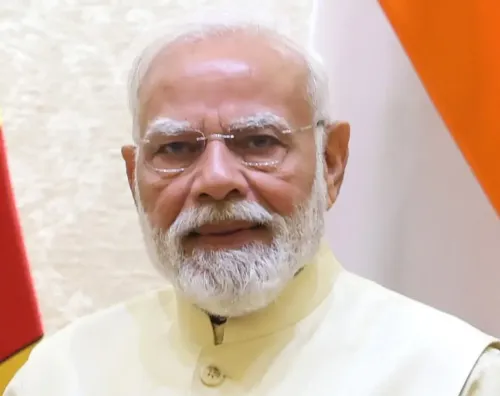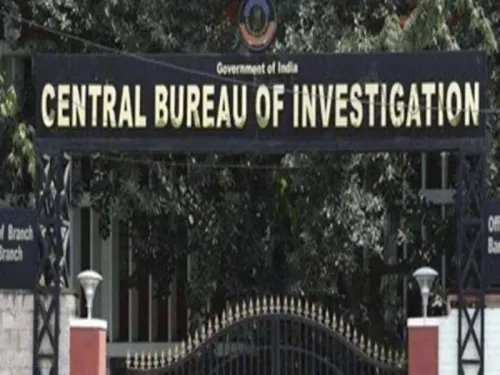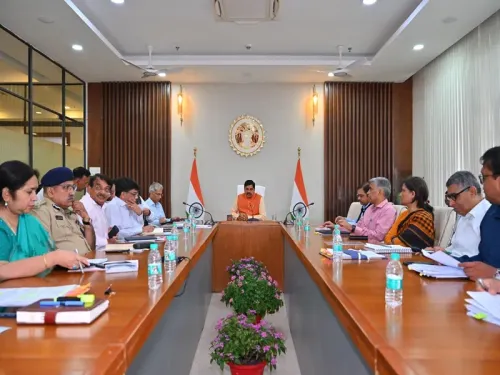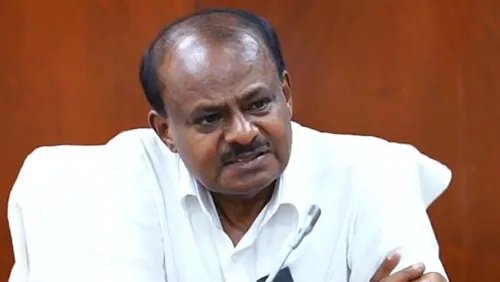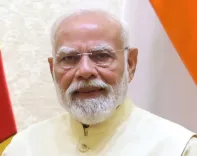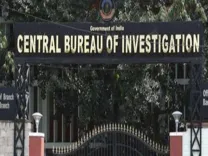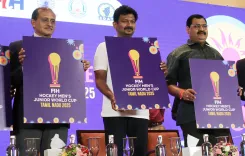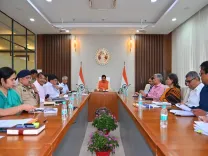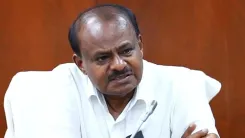Is the NEP a ‘game changer’ for India’s future?
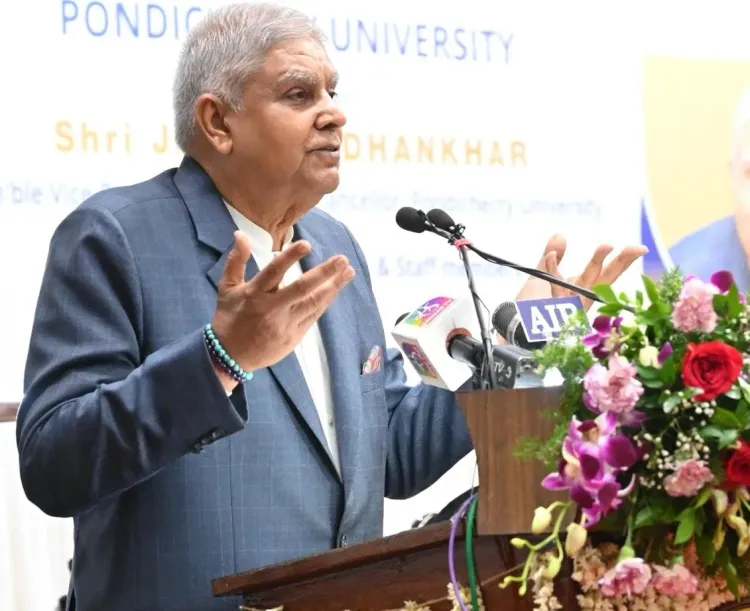
Synopsis
Key Takeaways
- NEP emphasizes education in the mother tongue.
- Focus on multidisciplinarity and innovation.
- Education seen as a service, not a commercial venture.
- Strengthening India's linguistic diversity.
- Aligning educational standards with global benchmarks.
Puducherry, June 17 (NationPress) Vice President Jagdeep Dhankhar characterized the National Education Policy (NEP) as a transformative force that can significantly advance India toward its goal of becoming a developed nation.
He urged state governments yet to adopt the NEP to reevaluate their positions, emphasizing the policy's profound implications for the student community.
Speaking to students and faculty at Pondicherry University during the conclusion of his two-day visit to the Union Territory, the Vice President referred to the NEP as a critical juncture in India’s educational landscape.
“This is among the most outstanding educational policies globally. It prioritizes education in the mother tongue while encouraging universities to foster multidisciplinarity, critical thought, skill enhancement, and innovation. It empowers our youth to fully realize their potential,” he stated.
Dhankhar remarked that this new educational structure is essential for realizing the Prime Minister’s vision of a developed India by 2047.
“As we strive toward this objective, our institutions must aspire to be on par with the world’s elite. Industries and corporations need to invest in the educational ecosystem,” he asserted.
Nonetheless, he cautioned that this should not result in the commodification or commercialization of education.
“Our approach should resonate with the traditional gurukula model that emphasizes character development alongside knowledge acquisition. Education ought to be viewed as a service, not a commercial venture,” the Vice President added.
Expressing optimism about India’s upward trajectory, Dhankhar stated, “India is no longer merely a nation of potential; it is a rising power. This momentum is unyielding, although challenges will persist. These challenges could become more intricate if our political leaders do not consistently prioritize national interests and development.”
He also reflected on India’s illustrious academic history, highlighting that the nation was once a hub for globally recognized centers of learning.
“Scholars from around the globe came to India to exchange and acquire knowledge. Sadly, invasions severely disrupted our intellectual heritage,” he remarked.
“Yet, our Sanatan pride is being resurrected. What was lost is being reclaimed with renewed vigor,” he added.
Emphasizing India's linguistic richness, Dhankhar pointed out that the nation's strength lies in its inclusivity.
“India cannot be fragmented on the basis of language. No other nation possesses the linguistic diversity that we do. In Parliament, discussions can occur in 22 languages, showcasing our deep respect for linguistic plurality.”
“Sanatan teaches us unity in the pursuit of a shared, noble goal,” he concluded.
Puducherry Lieutenant Governor K. Kailashnathan and Chief Minister N. Rangasamy were also in attendance at the event.

